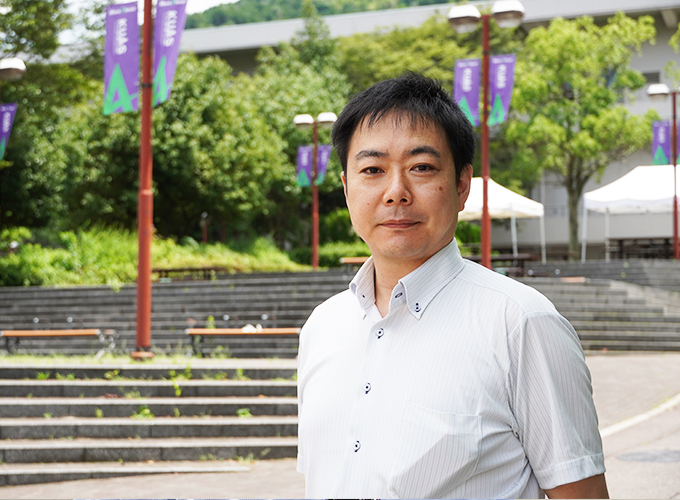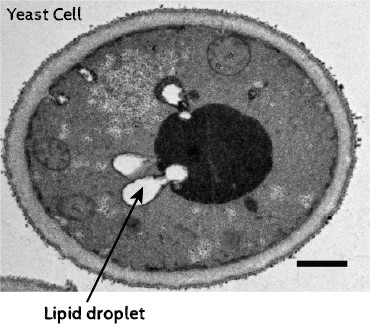Masahide Oku
Associate Professor, Ph.D. in Agriculture
- oku.masahide

- Areas of Research
- Autophagy, Cell Biology, Lipid Dynamics, Yeast Biotechnology
- Profile
- Research
-
Dr. Masahide Oku, studied at the Department of Agriculture at Kyoto University and earned a Ph.D. in autophagy in 2003. He went on to autophagy research as a post-doc at a laboratory led by Dr. Yoshinori Ohsumi (the 2016 Nobel Prize laureate in Physiology or Medicine) from 2005 to 2008. He then returned Kyoto University as an assistant professor, where he won the Top-cited-article Award from BioEsssays Journal (Wiley, 2018-2019).
In 2020, Dr. Oku was appointed as an associate professor at KUAS, where he teaches Biology (basic) and Cell Biology (professional-basic). He is also in charge of the Molecular Biology experimental course that aims to provide students with DNA and protein-handling skills essential to careers in the biotechnology industry.
He loves to play horn (a musical instrument), and once belonged to an orchestra club during his days as a university student. -
Each of the cells forming our bodies are delineated with membrane structures whose main composites are lipids. Lipids not only exist as cellular membrane components, but also as storage entity packed in an inner part of a certain organelle (intra-cellular structure) called lipid droplet (as shown in the photo). The storage lipid in the human body can be transferred to another complex structure termed VLDL (Very Low-Density Lipoprotein). When present in excess, VLDL in blood vessels can cause multiple diseases, so the regulation of lipid amounts is vital to our health. From a biotechnological viewpoint, the regulation system of lipid amounts should be manipulated to maximize the production activity of oils (composed of lipids), the major resources of biofuels.
Dr. Oku has elucidated molecular mechanisms to regulate the cellular lipid amounts, especially in relation to autophagy1)-3), using yeasts as experimental objects. Autophagy refers to intra-cellular recycling systems and has become a subject of biomedical research that has garnered lots of attention. He has been leading world-wide studies on microautophagy, a subset of autophagy systems4). At KUAS, he is extending his lipid research to include the dynamics of a mitochondrial lipid, cardiolipin, which is also highly related to specific diseases.
References
1) Autophagy, 11: 1247-1258 (2015)
2) J. Biochem., 161: 339–348 (2017)
3) J. Cell Biol., 216: 3263-3274 (2017)
4) BioEssays, 40: e180008 (2018)
Electron microscopy photo of a yeast cell possessing the lipid droplet. Bar, 500 nm.